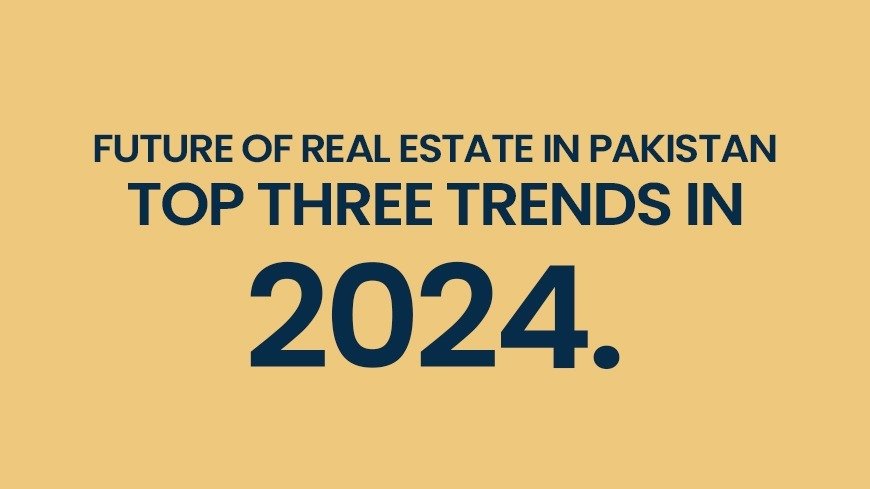- February 12, 2024
- Posted by: Muhammad Shehzad
- Category: Blogs

The emergence of towering structures typically signals progress and advancement within a nation, fostering employment opportunities and enticing international capital. This blog aims to delve into the evolution real estate sector in Pakistan, tracing its historical trajectory and projecting future trends for 2024. By examining the legacy of real estate, we can gain insights into its profound influence on contemporary capitalist norms.
Historical Background:
Throughout history, private property has sparked concerns among left-wing economic theorists, yet it consistently contributes to greater prosperity. Before the dawn of agriculture, humanity endured the whims of environmental unpredictability. Settlements only emerged with agriculture, marking the genesis of advanced societies.
Emile Durkheim, the founder of sociology, attributed the origins of modern capitalism to rapid development across various economic sectors, fostering deeper societal connections. This transition, termed ‘modernity,’ spurred mass migrations from rural to urban areas, driven by a desire for connectivity and advancement.
In today’s rapidly evolving society, staying updated can be daunting. Our marketing strategy aims to simplify complex developments, ensuring you remain informed and relevant. The real estate industry exemplifies global growth, with firms like Bahria Town reshaping Pakistan’s landscape. Such developments prompt reflection on investment decisions amidst evolving economic trends.
Read: Real Estate’s Future: How Technology Is Transforming The Industry
Upcoming Trends in 2024
1. Rising Investments:
In the anticipated landscape of real estate in Pakistan in 2024, a palpable sense of optimism pervades the investment sphere, heralding a resurgence of capital inflows across various sectors. This resurgence, fueled by a combination of economic recovery, technological innovation, and shifting market dynamics, is poised to reshape the global investment landscape in profound ways.
One of the primary drivers of rising investments of real estate in Pakistan 2024 is the widespread economic recovery following the tumultuous events of recent years. As economies rebound from the effects of the global pandemic and geopolitical uncertainties, investor confidence is on the rise. This renewed confidence is bolstered by supportive fiscal and monetary policies enacted by governments and central banks worldwide, aimed at stimulating growth and fostering a conducive investment climate.
Furthermore, technological advancements continue to disrupt traditional industries and create new investment opportunities. Emerging sectors such as artificial intelligence, renewable energy, and digital infrastructure are attracting considerable attention from investors seeking to capitalize on transformative trends. In particular, the acceleration of digitalization and the adoption of remote work models have catalyzed investment in technology-driven solutions, driving demand for innovative products and services.
2. Expansive Projects in Various Cities:
As we look ahead to the landscape of 2024, a notable trend poised to shape urban environments worldwide is the proliferation of expansive projects in diverse cities. These projects, characterized by their scale, ambition, and transformative impact, reflect a concerted effort to address the evolving needs and aspirations of urban populations.
At the heart of this trend is the relentless pace of urbanization, with cities emerging as focal points of economic activity, innovation, and cultural exchange. Rapid population growth, coupled with increasing demands for infrastructure, housing, and amenities, has spurred governments, developers, and stakeholders to embark on ambitious projects aimed at enhancing the livability, sustainability, and competitiveness of urban centers.
In addition, one prominent example of expansive projects real estate in Pakistan in 2024 is the development of smart cities, which leverage cutting-edge technologies to optimize resource management, improve connectivity, and enhance the quality of life for residents. From integrated transportation systems to sustainable energy solutions, smart city initiatives represent a holistic approach to urban development that prioritizes efficiency, resilience, and inclusivity.
Moreover, the resurgence of interest in mixed-use developments underscores a shift towards more holistic and integrated urban planning strategies. These projects, which combine residential, commercial, retail, and recreational spaces within a single precinct, create vibrant urban environments. Also, this environment fosters social interaction, cultural exchange, and economic vitality.
3. Homes for Lower Income Groups:
In the projected landscape of 2024, a significant focus of urban development initiatives will be on addressing the pressing need for affordable housing solutions for lower-income groups. This trend reflects a growing recognition of the importance of ensuring access to safe, decent, and affordable housing for all segments of society, particularly amidst increasing urbanization and housing affordability challenges.
One of the primary drivers of this trend is the persistent gap between housing demand and supply of real estate in Pakistan, exacerbated by rapid urbanization and population growth. As cities continue to expand, the demand for housing, especially among lower-income groups, outstrips the availability of affordable options. However, these lead to overcrowding, informal settlements, and housing insecurity. In response, governments, developers, and nonprofit organizations are increasingly prioritizing the development of affordable housing projects to address this growing need.
These initiatives encompass a range of strategies, including subsidized housing programs, public-private partnerships, and regulatory reforms aimed at incentivizing affordable housing development. By leveraging innovative financing mechanisms, such as tax incentives, land subsidies, and low-cost financing, stakeholders are working to make housing more accessible and affordable for lower-income households.
Also Read: Future Of Property Investment Analysed – And How Capital Smart City Fits In
Conclusion
The future of real estate in Pakistan in 2024 is marked by three prominent trends: rising investments, expansive projects in various cities, and a focus on homes for lower-income groups. These trends underscore the evolving landscape of urban development, driven by economic growth, technological innovation, and social responsibility. However, by prioritizing affordability, sustainability, and inclusivity, the real estate sector in Pakistan is poised to contribute to the creation of vibrant. Also the creation of resilient communities in the years ahead.
